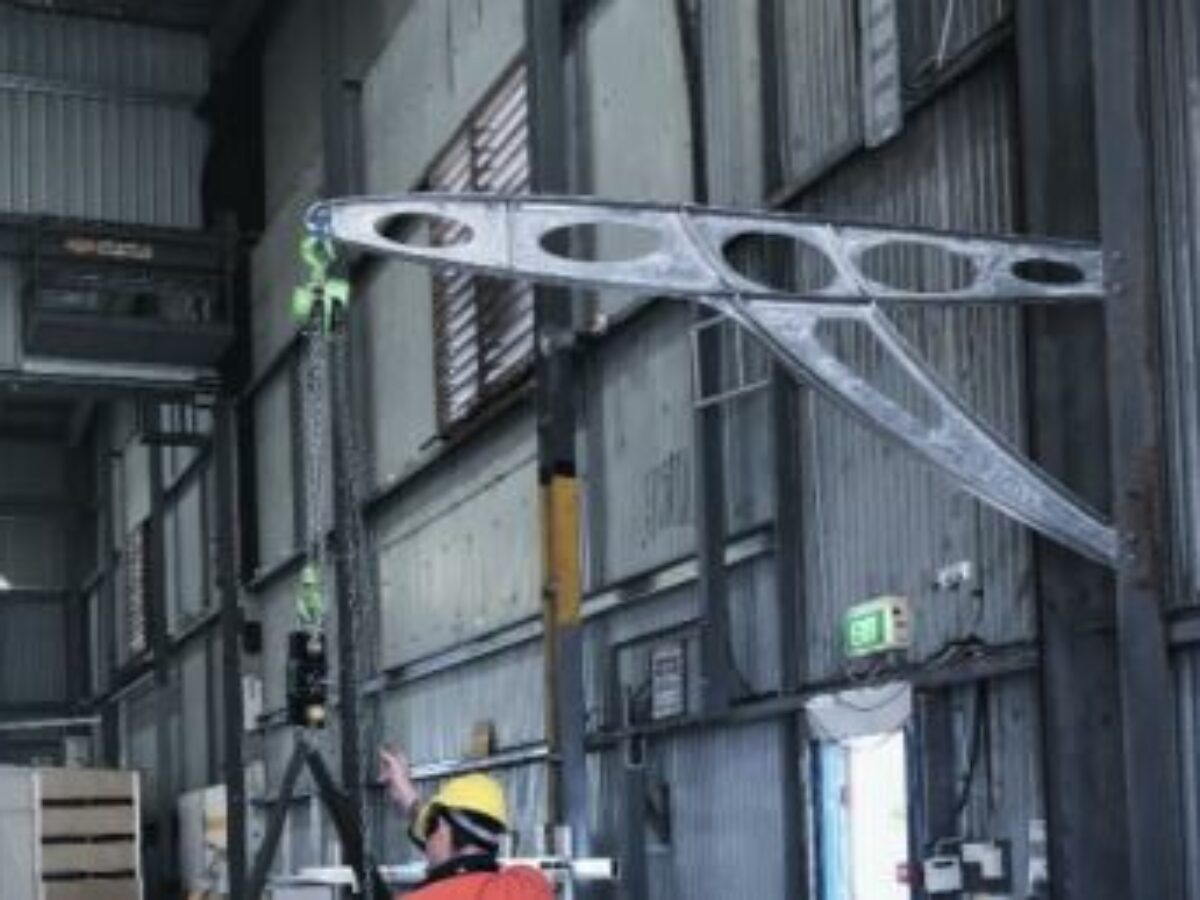AML3D and Austal produce additive vessel component

Additive manufacturer AML3D and shipbuilder Austal have had a 3D printed marine component independently tested and verified.
The three metre long personal recovery davit (crane, pictured) was designed and manufactured by AML3D at its Adelaide factory utilising its wire additive manufacturing (WAM) technology.
AML3D utilised the company’s design for additive manufacturing (DfAM) platform to produce a lighter, more environmentally friendly solution with greater load-bearing capacity.
The crane has now been functionally tested to more than twice its design working load and verified by risk management and quality assurance firm DNV.
Extensive tests were also carried our by the John de Laeter Centre and the Curtin Corrosion Centre at Curtin University involving microanalysis instrumentation.
Mechanical and corrosion characteristics were assessed and compared against established marine grade metals.
AML3D managing director Andrew Sales said: “This is a fantastic achievement by the AML3D team and our other partners in this project.
“Working with Austal’s vision for implementing additive manufacturing has been a further endorsement for our own business model and we are excited for the future.”
Austal’s chief digital officer Andrew Malcolm said there were many opportunities to pursue emerging technologies with Australian industry.
Malcolm said: “Austal Australia has been working with AML3D since 2019 on the development of hybrid manufacturing approaches that put robotics side by side with our highly skilled tradesmen and women to fabricate large complex structures.
“Wire arc additive manufacturing has the potential to enable a productivity step change in shipbuilding, able to 3D print marine grade metal structures at a scale well beyond other commercially available metal 3D printing technologies.”
Picture: AML3D
Subscribe to our free @AuManufacturing newsletter here.
Topics Technology
@aumanufacturing Sections
Analysis and Commentary Awards Defence Manufacturing News Podcast Technology Videos






